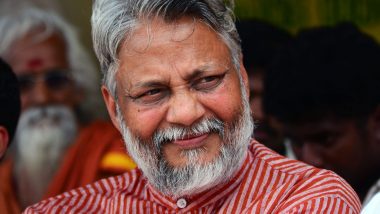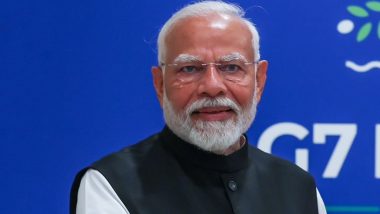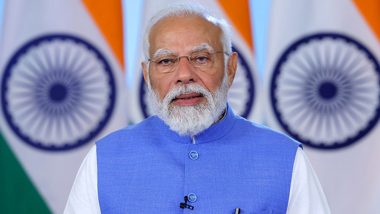Rajendra Singh of Alwar district of Rajasthan is rightly known as the 'Waterman of India'. Born on August 6, 1959, at village Daula in Bagpat district of Uttar Pradesh, his efforts towards water conservation has been of great significance. His work ensured that the villagers take charge of water management in semi-arid areas that lie close to the Thar Desert. He started an NGO called Tarun Bharat Singh (TBS) in 1975 in village Hori-Bhikampura in Thanagazi tehsil, near Sariska Tiger Reserve. It did many things among helping villagers take charge of water management. World Nature Conservation Day 2020: From 'Swachh Bharat Abhiyan' in India to 'Amazon Forest Protection Bill' in Brazil, 7 Campaigns That Promote Nature and Wildlife Conservation.
His works have earned him quite a lot of accolades throughout his life. On Dr Rajendra Singh's birthday, we bring to you some of the most important decisions he has taken in his life.
- His NGO called 'Tarun Bharat Sangh' has been instrumental in fighting the slow bureaucracy and mining lobby in the region.
- TBS helped build over 8,600 johads and other water conservation structures to collect rainwater for the dry seasons. This project helped over 1,000 villages and revived five rivers in Rajasthan including the Arvari, Ruparel, Sarsa, Bhagani and Jahajwali.
- He has been striving to save using rainwater storage tanks, dams and other techniques.
- He enrolled for post-graduation in Hindi literature, at another college in Baraut, affiliated with Allahabad University.
- He joined government service in 1980, and started his career as a National Service Volunteer for education in Jaipur. From there, he was appointed to oversee adult education schools in Dausa district in Rajasthan.
- He won the Magsaysay Award in 2001 and Stockholm Water Prize in 2015 for his water conservation activities.
- He later also bagged the title of ‘Waterman of India’.
- Singh is one of the members of the National Ganga River Basin Authority (NGRBA) which was set up in 2009, by the Government. It was to empower planning, financing, monitoring and coordinating authority for the Ganges to exercise of the powers conferred under the Environment (Protection) Act,1986.
Talking about his work, he was once quoted as saying, "Water literacy comprises three major steps. The first step is understanding water which means that learning about all water sources from glaciers to groundwater and water cycle, the flora-fauna, and the socio-economic landscape dependent on these water sources. Second is practising conservation of water through various measures including rainwater harvesting and wastewater management. The last step is making other people understand and save water." We wish the 'Waterman of India' very Happy Birthday!
(The above story first appeared on LatestLY on Aug 06, 2020 08:30 AM IST. For more news and updates on politics, world, sports, entertainment and lifestyle, log on to our website latestly.com).













 Quickly
Quickly






















